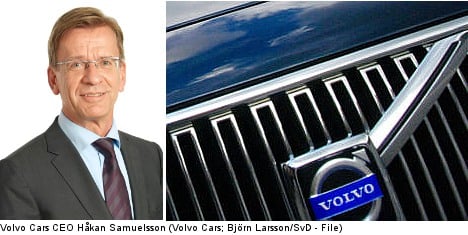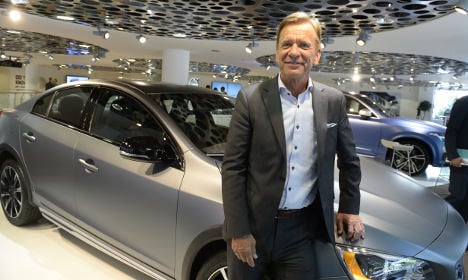“I see major opportunities for Volvo Cars to improve profitability, and accelerate our growth plan in China specifically. I am convinced that Håkan Samuelsson’s thorough experience and leadership will help us increase performance,” Li Shufu, majority shareholder and chair of the Volvo Board said in a statement.
Samuelsson has served as an independent member of the Volvo Car Group board since 2010.
Between 2005 and 2009, he served he served as chairman and CEO of MAN SE, a Munich-based heavy truck and engineering firm.
The 61-year-old Swede started his career at Swedish truckmaker Scania in 1977.
“My time on the Board has provided me with insight in the Volvo brand and the company,” Samuelsson said in a statement.
“No other business is as demanding, complex and full of challenges as the automotive industry. I look forward to leading Volvo Car Group in the most exciting period of its history.”
With Samulesson’s appointment, Jacoby, who became the CEO for Volvo Cars in August 2010, will leave Volvo “amicably” after having suffered a stroke in September this year.
In a statement issued shortly after he fell ill, Jacoby wrote that it was a minor stroke, which restricted mobility of his right arm and to some extent of his right leg. However, he was expected to be able to return to work after a month or so.
However, at the beginning of October there were rumours indicating that there were rifts within the company.
Reuters news agency reported on a rumoured conflict between Jacoby and board chairman Hans-Olov Olsson, citing anonymous sources.
However, Olsson denied the rumours in an interview with TT, saying that though there were of course discussions in the boardroom among the top layer of Volvo officials, there was no open conflict.
Speaking at a press conference in Stockholm on Friday at which his appointment was announced, Samulesson said that boosting sales in China was at the top of his agenda.
“Better sales in China, our new home market, is one my most important goals right now,” he said, according to the TT news agency.
“Better profitablity and cost control are the others.”



 Please whitelist us to continue reading.
Please whitelist us to continue reading.
Member comments